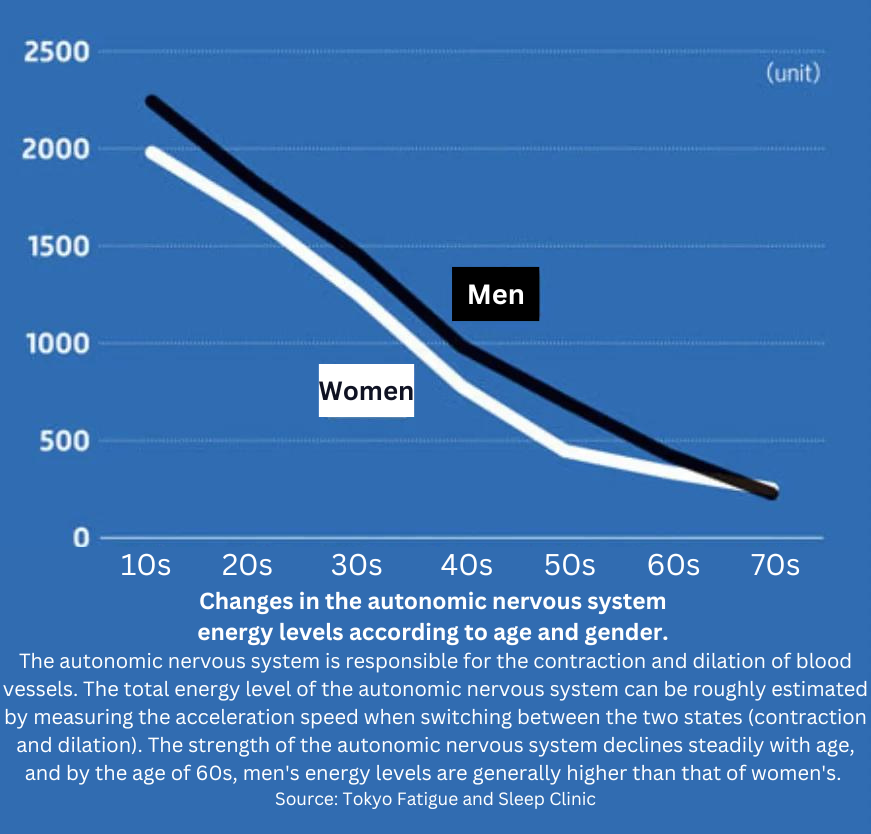March 16, 2024

Today, I would like to touch on the importance of the autonomic nervous system.
Have you noticed that you are getting tired more easily these days?
From the age of 30s onwards, we tend to become more conscious of fatigue and other signs of aging.
I myself must confess that I have been feeling a little under the wind too recently.
The cause of this can be attributed to the gradual aging of the autonomic nervous system.
The autonomic nervous system is in charge of regulating heart and breathing rates, blood pressure, body temperature, absorption and digestion, as well as the energy levels of the metabolism.
So it only makes sense that if the autonomic nervous system ages, it will not be able to keep up as well as it used to.
The autonomic nervous system consists of the sympathetic and parasympathetic divisions, and each of these has its respective power levels.
It is well-known that the total energy levels peak in one’s teens before steadily declining as we age.
There is also a difference between genders, with men having higher total power than women up to their 60s, and the two becoming almost equal in their 70s.
Compared to people in their teens, the activity levels of the autonomic nervous system is about half in people in their 40s, and falls below a quarter in people in their 60s.
As these energy levels start to decline, the body’s ability to regulate itself becomes insufficient, and you will need to push yourself harder or take more time to achieve the same results as before.
The autonomic nervous system, which used to be fine with only 6 hours of sleep, will at a later age require sleep for 7 hours to get rid of fatigue, or else you may find that you now have trouble sleeping, or wake up in the middle of the night because your autonomic nervous system is out of balance and unable to regulate itself properly.
The initial trigger for this aging of the autonomic nervous system is likely related to “oxidation caused by harmful reactive oxygen”.
Although the human body needs to take in oxygen through breathing to survive, about 1 to 2% of that oxygen ends up as ROS, reactive oxygen species (a substance that attacks the human cells).
* Moderate amounts of ROS are in fact useful for the immune system, but when produced in excess, they may attack the cells as described above.



